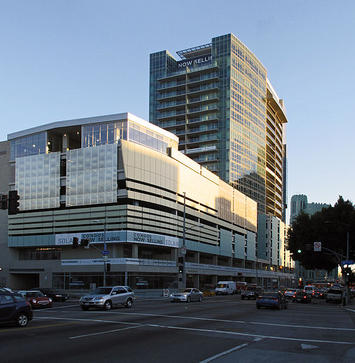
What kind of urban future is in the offing for Southern California? Well, if you look at both what planners want and current market trends, here’s the best forecast: congested, with higher prices and an ever more degraded quality of life. As the acerbic author of the “Dr. Housing Bubble” blog puts it, we are looking at becoming “los sardines” with a future marked by both relentless cramming and out-of-sight prices.
This can be seen in the recent surge of housing prices, particularly in the areas of the region dominated by single-family homes. You can get a house in San Francisco – a shack, really – for what it costs to buy a mansion outside Houston, or even a nice home in Irvine or Villa Park. Choice single-family locations like Irvine, Manhattan Beach and Santa Monica have also experienced soaring prices.
Market forces – overseas investment, a strong buyer preference for single-family homes and a limited number of well-performing school districts – are part of, but hardly all, the story. More important may be the increasingly heavy hand of California’s planning regime, which favors ever-denser development at the expense of single-family housing in the state’s interior.
Read the entire piece at The Orange County Register.
Joel Kotkin is executive editor of NewGeography.com and Roger Hobbs Distinguished Fellow in Urban Studies at Chapman University, and a member of the editorial board of the Orange County Register. He is also executive director of the Houston-based Center for Opportunity Urbanism. His newest book, The New Class Conflict is now available at Amazon and Telos Press. He is also author of The City: A Global History and The Next Hundred Million: America in 2050. He lives in Los Angeles, CA.
Photo by Downtowngal (Own work) [CC BY-SA 3.0 or GFDL], via Wikimedia Commons













Aren't higher prices just a reflection of market demand?
I'm confused. If crowded miserable conditions are so distasteful to so many people then why are prices rising so much? More people want to live in Southern California, but available land is limited. The entire coast has already been built on. Raising the price of property is one market mechanism for rationing a scarce commodity. Adding density is another way to satisfy the market demand. If both price and density are going up doesn't that just mean the market hasn't been satisfied yet?
If density is artificially limited by government regulations in order to preserve the single family home and suburban lifestyle won't that just restrict supply and drive prices even higher? Isn't that kind of top-down restriction on private property rights "social engineering"?
You could always drive out to Palmdale and get a cheap five bedroom house with a pool. There's no restriction on development out there. If people are willing and able to pay more for a condo near the ocean why stop that kind of development? Your argument is that you want comfortable suburban homes near the water to be cheap. You want 1955 back. Good luck with that.
No one's stopping you from moving to Houston...
www.granolashotgun.com
Free trade with Asia and
Free trade with Asia and mass-immigration are the two driving forces. Let's get real. America needs an across-the-board moratorium (pause, time-out) on further immigration until we can assimilate and integrate the seventy-five million first- and second-generation immigrants who are already here (including the eleven million undocumented), the vast majority of whom come from cultures and societies with no, or very weak, democratic traditions (and no love for Israel, btw).
As for free trade with Asia, while in theory it has the potential (with income redistribution) to benefit everyone, in practice redistribution isn't about to happen. Therefore, old-fashioned protectionism. That's something we know how to do.
I discuss these issues, even though they are off-topic, in my new American Zionist manifesto: http://goo.gl/C4k2H7